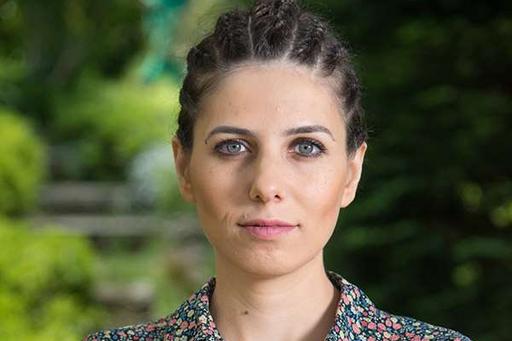"Global Studies should be a core course in all undergraduate programmes”
Şebnem Çerçel is an alumna from our master’s programme in Global Studies. She is a lawyer and considers pursuing a career in academia. Intercultural awareness and an interdisciplinary mindset are two skills she treasures from her studies with us.
Where do you work now, and what does it entail?
"I'm a lawyer in Türkiye. It involves two main aspects. The first, which I consider the most crucial, is providing preventive and protective legal services. This requires business awareness, the ability to analyse client needs, and the capacity to devise unique, cost-effective solutions. Tasks include drafting and negotiating agreements, conducting due diligence to analyze legal risks, and offering legal advice with a submitted roadmap, among others."
"The second part is dispute resolution. This requires a calm mindset and the ability to relieve the client’s psychological stress. It involves litigation and arbitration."

In what ways have you benefitted from your studies in your professional role?
"I've experienced three key benefits:
1) Cultural Awareness: I've represented clients from various countries, including Sweden, and collaborated with corporations and law offices across different cultures. The multicultural structure of the master's programme in Global Studies, with a diverse faculty and student body, enhanced my cultural awareness. This flexibility and cultural insight have been invaluable in my role as an international lawyer.
2) Collaborative Skills: In my legal practice, I've taken on lead roles in several international projects, requiring both individual and collaborative work. Reflecting on my master's studies, particularly the group assignments, I recognize that they played a significant role in developing my ability to work well in teams and independently. This skill set has greatly contributed to my success in handling international projects.
3) Communication Skills: I’m glad that I actively participated in seminars in various courses during my master’s studies. Seminars provided a platform to express ideas and engage in cross-cultural interactions. Effective communication skills, honed in these settings, are crucial not only in the legal profession but also in almost every field."
What do you appreciate the most about your studies at the master’s programme in Global Studies?
“First of all, I greatly appreciate the Swedish Institute (SI), which awarded me a scholarship. If SI hadn’t covered my tuition fee and living expenses, I would have only dreamed of studying in Sweden. Secondly, I’m really grateful to my master’s studies for reminding me that I have a deep love for the social sciences. It has also triggered my passion for working in Sweden, which was rooted in me many years ago during my internship in Gothenburg. I can firmly say that it has corrupted me in a healthy way, or, let’s be honest, not in a 100% healthy way. It takes blood, sweat, and tears to change your life and follow your passion. But anyway, I like challenges.”
Undoubtedly, to specialise in something and to be an expert in a field is a great thing, but only if one has already gained interdisciplinary thinking skills.
Why would you recommend the Master’s programme in Global Studies?
"As I've observed, specialization is more in demand than ever nowadays. Personally, I'm not a fan of this tendency. Undoubtedly, to specialise in something and to be an expert in a field is a great thing, but only if one has already gained interdisciplinary thinking skills. Sweden, known for its emphasis on innovative ideas, encourages this approach. The Master’s Programme in Global Studies at the University of Gothenburg provides an opportunity to cultivate interdisciplinary thinking. Core courses teach how to draw on diverse perspectives and theories to analyse global issues. Elective courses allow students to delve deeper into their preferences and research projects."
"With double bachelor’s degrees in law and international relations, I once envisioned a utopian fantasy. In my opinion, courses from programmes like global studies, international relations, and political science should be core components of all undergraduate programmes, including medical, engineering, and law. This is not only for the reasons mentioned earlier but also to foster a deep understanding of the world, to become a highly informed citizen, and to prevent us from finding ourselves in what Arendt termed ‘thoughtlessness.’ It's important to note that specialization is an option, not only during education but also in professional pursuits."
What is your favorite memory from your studies in Gothenburg?
“Of course, study breaks 😊 My favourite activities were picking up my best friend, eating soup together at Soppa & Sunt, then going for a long walk in Delsjön while having a chat, and having a sandwich and coffee at Kaffestugan Lyckan when getting tired. Actually, our lecturer Edmé Domínguez is the one who took us there for the first time. I’m so grateful to her, and I hereby send my warmest regards. And needless to say, visiting Liseberg at Christmastime. To be honest, these are not only my favourite memories but also my dreams to keep myself motivated during my job search in Sweden. I’m waiting for the day when I’ll be able to do these things again. So, I would be more than happy if someone reading this did these activities instead of me for now.”